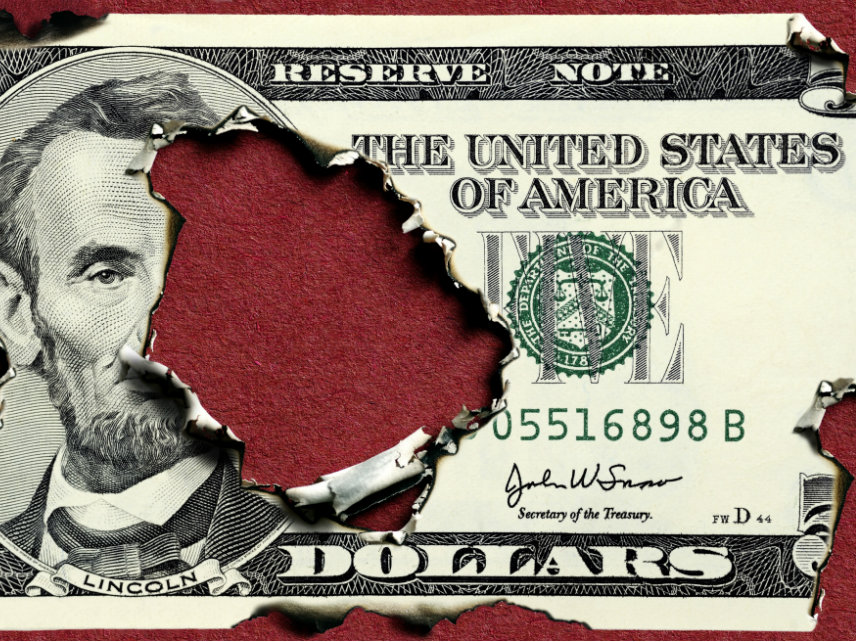It's Official: 2018 Federal Deficit Largest Since 2012
The federal government spent $790 billion more than it taxed during fiscal year 2018. The deficit is about to get worse. Much worse.

The federal government finished the 2018 fiscal year—it ended on September 30—a whopping $779 billion in the red, the largest annual budget deficit since 2012.
The current fiscal year is likely to see an even larger deficit, potentially in excess of $1 trillion.
The Treasury Department's final data for the 2018 fiscal year, released Monday, shows that the deficit was driven by a combination of higher spending and additional borrowing. The latter was necessary to finance the former, of course, though last year's tax cuts contributed to the widening gap between how much money the federal government takes in and how much it spends.
Tax revenues were flat during 2018 and corporate tax collections fell by $76 billion, Treasury reported.
On it's own, the fact that American companies were able to keep $76 billion out of the government's hands is cause for celebration. Those funds will certainly be put to more productive uses because they won't be funneled to Washington. Trump's corporate tax cuts brought the United States in line with the rest of the world, thereby increasing U.S. competitiveness in a global market.
But tax cuts without spending cuts are a recipe for disaster. While the Treasury's data for fiscal year 2018 looks backwards, the trajectory for the future is the bigger story.
The $779 billion deficit for fiscal year 2018 was up 17 percent from the $666 billion deficit recorded in fiscal year 2017. The data show that the deficit is growing faster than the economy as a whole. In 2017, the federal deficit was equal to 3.5 percent of gross domestic product (GDP), but grew to 3.9 percent of GDP in 2018.
According to the Congressional Budget Office, current policies have the United States on course for a $2 trillion deficit before the end of the next decade.
"It's an unsustainable fiscal course that will lead us to debt overtaking the size of the entire economy in as soon as a decade, and not long after topping all-time highs as a share of the economy not seen since World War II," said Maya MacGuineas, president of the Committee for a Responsible Federal Budget, which advocates for balancing the budget, in a statement.
Driven by old-age entitlements and surfing on a wave of retiring boomers, the federal government will continue to pile on more debt unless serious structural reforms are undertaken. A new analysis from longtime congressional budget aide Brian Riedl, now a senior fellow at the Manhattan Institute, a free market think tank, shows that Social Security and Medicare will run a $100 trillion deficit over the next 30 years. With the country already facing a national debt of more than $20 trillion, massive annual deficits in future years are likely to drive-up the cost of borrowing and cause America's already astronomical debt to grow at a faster pace, he warns.
That this latest increase in the deficit happened during a period when Republicans had full control of the federal government reveals that they were never very serious about balancing the budget. Even now, they refuse to recognize the problem. Democrats, meanwhile, are promising to spend even more on entitlements, if and when they return to power.
Almost nothing about the current state of affairs in Washington suggests that policy makers are prepared to deal with this looming catastrophe. Today's news is a reminder that the reckoning is coming, regardless of whether our elected officials are ready for it.


Show Comments (97)